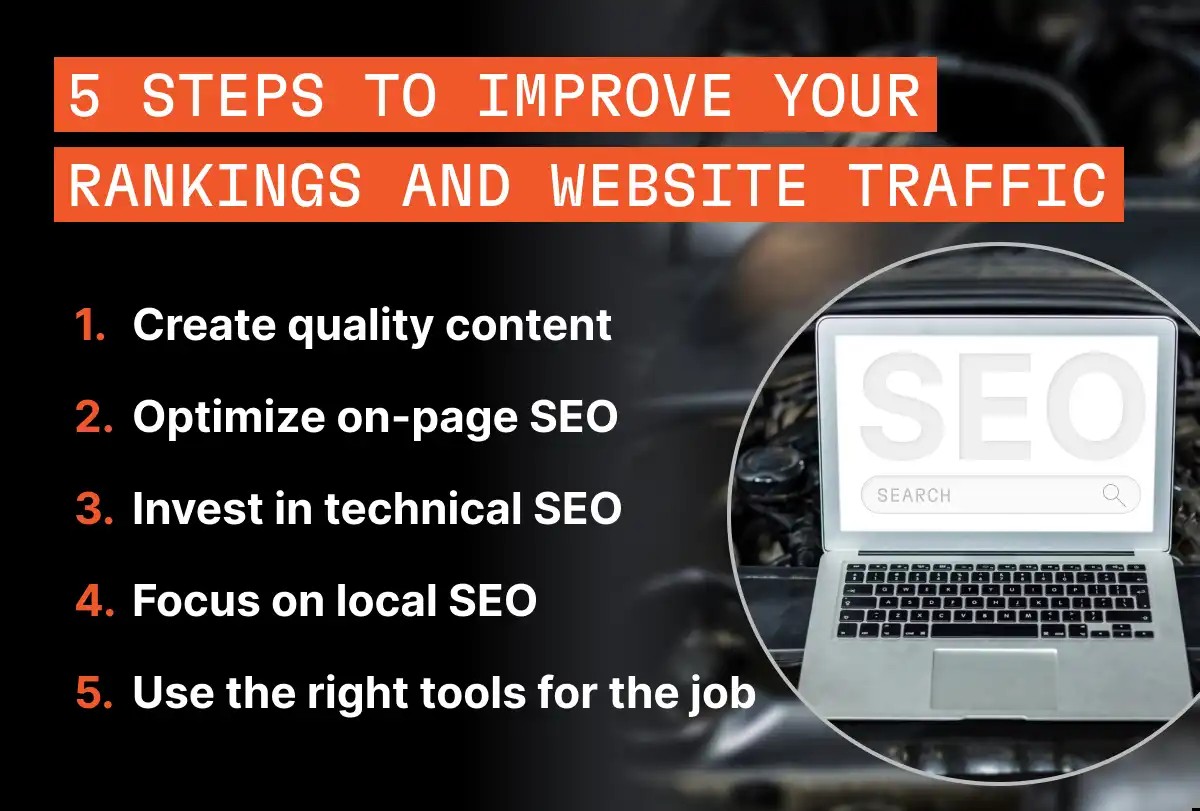The automotive repair industry is constantly evolving, and one of the most dynamic shifts is the rise of mobile auto repair services. Instead of customers coming to a shop, mobile mechanics bring the repair shop to the customer’s location, offering unparalleled convenience. If you’re mechanically inclined and dreaming of entrepreneurship, starting a mobile auto repair business could be your perfect route. This guide will walk you through the essential steps to get your mobile mechanic venture off the ground and running smoothly.
1. Develop a Solid Business Plan
Like any successful venture, a mobile auto repair business needs a robust business plan. This isn’t just paperwork; it’s your roadmap to success. Your plan should outline:
- Executive Summary: A brief overview of your business concept, mission, and goals.
- Company Description: Detail the nature of your mobile auto repair business, your unique selling points, and the services you’ll offer. Will you specialize in certain types of vehicles or repairs?
- Market Analysis: Research your target market. Who are your ideal customers? What is the demand for mobile auto repair in your service area? Analyze your competition – are there other mobile mechanics nearby?
- Services Offered: Be specific about the services you will provide. Will you focus on routine maintenance (oil changes, brake jobs) or more complex diagnostics and repairs? Consider specialization to stand out.
- Marketing and Sales Strategy: How will you attract customers? Will you rely on online marketing, local partnerships, or word-of-mouth? Define your pricing strategy to be competitive yet profitable.
- Operations Plan: Detail your day-to-day operations, including scheduling, service delivery, customer communication, and invoicing.
- Financial Projections: Estimate your startup costs (vehicle, tools, insurance), operating expenses, and revenue projections. Secure funding if needed.
2. Acquire Essential Tools and Equipment
Your service vehicle is your mobile workshop, and equipping it properly is crucial. You’ll need a reliable van or truck with ample space to carry your tools and equipment safely and efficiently. Essential tools include:
- Professional-Grade Tools: Invest in quality hand tools, power tools, diagnostic scanners, and specialized automotive repair equipment.
- Vehicle Lift or Jacks: Portable car lifts or heavy-duty jacks are necessary for undercarriage work.
- Fluid Management: Equipment for safely handling and disposing of used oil, coolant, and other fluids.
- Power Supply: A generator or inverter to power your tools and diagnostic equipment on location.
- Organization and Storage: Toolboxes, shelving, and storage solutions to keep your equipment organized and easily accessible within your vehicle.
- Safety Equipment: Prioritize safety with items like gloves, safety glasses, jack stands, wheel chocks, and a fire extinguisher.
 Image of a mobile mechanic working on a car engine outdoors.
Image of a mobile mechanic working on a car engine outdoors.
3. Address Legal and Regulatory Requirements
Operating a mobile auto repair business involves legal and regulatory compliance. Ensure you cover these crucial aspects:
- Business Registration and Licensing: Register your business name and obtain the necessary local, state, and federal business licenses and permits. This may include a business license, auto repair license, and potentially an environmental permit for waste disposal.
- Insurance Coverage: Secure adequate business insurance, including general liability insurance, professional liability insurance (errors and omissions), and commercial auto insurance to protect yourself from liabilities and damages.
- Zoning and Operational Regulations: Check local zoning laws regarding operating a mobile business and any regulations specific to auto repair services, especially regarding waste disposal and environmental protection.
- Certifications (ASE): While not always mandatory, certifications from organizations like the National Institute for Automotive Service Excellence (ASE) can significantly enhance your credibility and attract customers.
4. Develop a Marketing Strategy to Reach Customers
Getting the word out about your mobile auto repair business is essential for attracting clients. Focus on these marketing avenues:
- Online Presence: Create a professional website and social media profiles. Optimize your website and online listings for local search terms like “mobile mechanic near me” or “mobile auto repair [city/area]”.
- Google My Business Profile: Set up and optimize your Google My Business profile. This is crucial for local SEO and allows you to appear in Google Maps and local search results when customers search for mobile mechanics in their area.
- Local SEO (Search Engine Optimization): Implement local SEO strategies to improve your visibility in online searches within your service area. This includes using location-specific keywords, building local citations, and getting online reviews.
- Networking and Partnerships: Connect with local businesses (e.g., car dealerships, fleet companies, roadside assistance services) for potential partnerships and referrals.
- Customer Referrals and Reviews: Encourage satisfied customers to leave online reviews on platforms like Google, Yelp, and social media. Positive reviews build trust and attract new clients.
- Promotional Offers: Consider introductory discounts or special offers to attract initial customers and build your client base.
5. Streamline Operations for Efficiency and Customer Satisfaction
Efficient operations are key to profitability and customer satisfaction in a mobile auto repair business:
- Scheduling and Dispatching: Implement a system for managing appointments, scheduling services, and dispatching yourself efficiently to customer locations. Consider using scheduling software or apps.
- Mobile Invoicing and Payment Processing: Utilize mobile invoicing and payment solutions to generate invoices on-site and accept various payment methods conveniently.
- Customer Communication: Maintain clear and prompt communication with customers from initial booking to service completion. Provide updates and confirm appointments.
- Inventory Management (Parts): Establish a system for managing frequently used parts and supplies in your vehicle. Develop relationships with parts suppliers for quick access to needed components.
- Professionalism and Customer Service: Provide exceptional customer service. Be punctual, professional, and courteous. Go the extra mile to build customer loyalty and generate positive word-of-mouth referrals.
Starting a mobile auto repair business requires dedication, mechanical expertise, and business acumen. By following these steps and consistently providing high-quality, convenient service, you can build a thriving and profitable mobile mechanic venture in the growing automotive service market.
